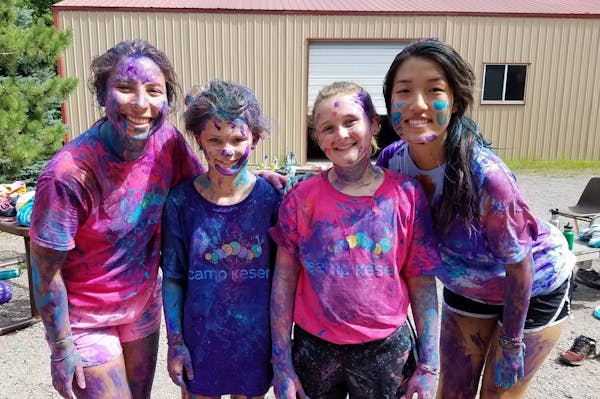CHICAGO – Richard Packman first donated blood at a church blood drive after a member's child had been diagnosed with cancer.
More than two decades and 1,000 hours later, Packman sat on a recent Friday morning in a blue chair inside Vitalant's office in Chicago's James R. Thompson Center to make his 500th blood donation.
Shiny party streamers and posters surrounded the chair he often sits in for nearly two hours while donating platelets, the cells in the blood that are involved in the body's clotting process.
"One person can make a difference," one sign stated. "Thank you, Richard, for your life saving gift. We look forward to 500 more!!"
Packman blew out the candles of a carrot cake the staff had brought to commemorate the day. His wife, Diana Packman, joined the celebration. But she didn't dare get in the chair to donate, noting the only time she tried to donate blood ended in her fainting.
"It was a major production," Richard Packman said.
Related
Start your week Inspired

Packman, 74, of the Loop, initially started donating blood in the early 1990s, in a procedure that usually takes less than 30 minutes. He remembers a phlebotomist — a person trained to draw blood — commented he had "big veins" and explained how he could become a platelet donor. His blood is taken from one of his arms and run through a machine that pulls out the platelets, and then the blood is returned to his body, Packman said, as he held onto a small stress ball decorated to look like a soccer ball.
"It takes longer than a blood donation, but it's well worth it," Packman said. "I really enjoy being a platelets donor because you really know you're saving lives."
Stephanie Boulware, a supervisor at the Vitalant office, said the body replenishes the platelets within a couple of days. Vitalant — until recently known as LifeSource — sends the donations to area hospitals, and they are most commonly used on cancer patients, who lose platelets if they are undergoing chemotherapy.
Each donation is only usable for about five days, she said. Donors do not receive money for their platelets.
Although the only discomfort a person might feel is a pinch, Boulware said it's harder to get donors for platelets than regular blood because of the time commitment. The procedure itself takes about an hour and a half, but that doesn't include the initial screening the staff does to verify the person is eligible to donate.
Boulware said Packman is among the office's few regular donors.
"That's hundreds of hours he spent doing that just for the satisfaction of saving people's lives because there is absolutely no replacement for platelets from a person," Boulware said.
Packman brushes aside the time he's spent donating blood.
"It's not hard," he said.
"This is the one I stuck with the longest because you actually get an opportunity to save someone," Packman said. "And I like this chair, I like this group."






